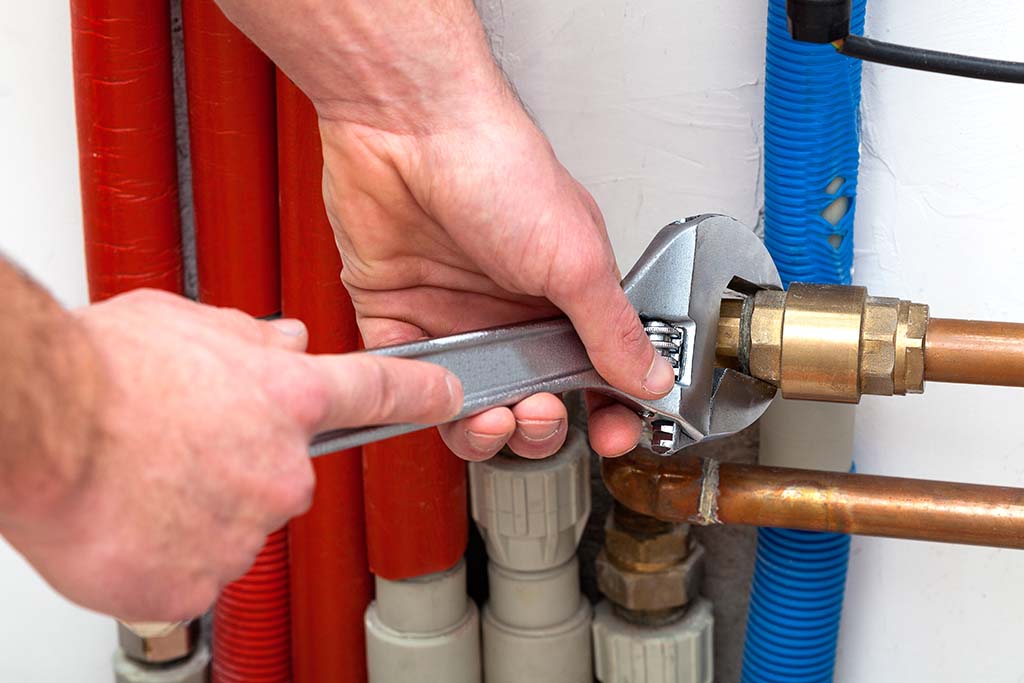Understanding Bathroom Plumbing: Key Guidelines for New Homeowners
Understanding Bathroom Plumbing: Key Guidelines for New Homeowners
Blog Article
The article down the page about General Plumbing Tips for New Homeowners is amazingly engaging. Read it for yourself and see what you think of it.

For brand-new homeowners, understanding and preserving bathroom plumbing can save both time and money by stopping expensive concerns down the line. Below are some crucial bathroom plumbing tips to aid you maintain every little thing running efficiently.
Familiarize Yourself with the Main Shut-Off Shutoff
Knowing where the major water shut-off valve lies in your home is important. This enables you to swiftly switch off the supply of water in case of significant leakages or throughout pipes emergencies, stopping extensive water damage.
On A Regular Basis Check for Leaks
Tiny leaks can bring about big troubles. Frequently examine under sinks, around toilets, and near plumbing fixtures for any kind of signs of leaks. Try to find dampness, little drips, or corrosion. Capturing and fixing leaks early can prevent much more severe damages and conserve water.
Do Not Overlook Slow Drains Pipes
If your sink or bath tub is draining slowly, it's often a sign of a clog forming. Addressing this very early can protect against a full obstruction. Use a plunger or a plumbing professional's serpent to clear out particles. Stay clear of utilizing chemical drain cleaners as they can harm your pipes over time.
Know What Not to Flush
Commodes are not waste disposal unit. Stay clear of flushing anything other than toilet tissue and human waste. Items like wipes, womanly hygiene items, and cotton swabs need to be gotten rid of in the trash to avoid clogs and drain backups.
Set Up Strainers in Drains
Place filters in your sink and bathtub drains to capture hair and various other debris before they enter your plumbing system. Cleaning up the filters routinely will aid avoid accumulation and maintain water moving freely.
Keep Your Water Heater
Guarantee your water heater is readied to an ideal temperature level (normally about 120 degrees Fahrenheit) to avoid hot and reduce energy use. Flush the storage tank every year to get rid of debris buildup, which can minimize the performance and lifespan of your heating unit.
Update Your Fixtures
If your home has older components, think about updating to a lot more efficient versions. Modern commodes, showerheads, and taps are designed to use much less water while supplying excellent pressure, which can dramatically decrease your water costs and environmental footprint.
Beware with DIY Pipes Repairs
While it's alluring to handle all home repair services by yourself, beware with pipes. Some issues could require specialist know-how, especially if they involve major water lines or drain repair work. Working with an expert can in some cases be extra cost-efficient than DIY, especially if it avoids further damages.
Prepare for Winter
Safeguard your pipelines from freezing throughout cold weather by protecting pipes in unheated locations like cellars, attic rooms, and garages. During severe chilly, allow cold water drip from faucets served by exposed pipelines to aid prevent freezing.
Arrange Normal Maintenance
Consider scheduling annual assessments with a certified plumber. They can spot concerns that you could miss, such as hidden leakages or deterioration on pipes and components. Routine maintenance assists extend the life of your plumbing system and can protect against emergency situations.
Final thought
Understanding and keeping your home's shower room pipes can prevent lots of usual issues. By following these essential pointers, you can guarantee your restroom continues to be practical and efficient, conserving you time and money in the future.
Essential Plumbing Tips for Homeowners: Keep Your Pipes Flowing Smoothly
As a homeowner, understanding the basics of your plumbing system can save you time, money, and a lot of headaches. Plumbing issues can range from minor annoyances like dripping faucets to major problems like burst pipes that cause significant damage. This guide provides essential tips to help you maintain your plumbing system and tackle common issues.
Understanding Your Plumbing System
Supply System: Brings fresh water into your home from a municipal source or a well. Drain-Waste-Vent System: Removes wastewater and vents sewer gases outside. Fixtures and Appliances: Includes sinks, toilets, showers, dishwashers, and washing machines. Basic Maintenance Tips
Regular Inspections: Periodically check for leaks, corrosion, and other signs of wear and tear. Look under sinks, around toilets, and near water heaters. Know Your Main Shut-Off Valve: In case of a major leak, you’ll need to shut off the water quickly. Ensure everyone in your household knows where the main shut-off valve is located. Prevent Frozen Pipes: In cold climates, insulate exposed pipes and let faucets drip during extreme cold to prevent freezing. Use Strainers: Install strainers in sinks and tubs to catch hair, food particles, and other debris that can cause clogs. Common Plumbing Issues and Solutions
Clogged Drains:
Prevention: Avoid pouring grease down the drain and use drain screens to catch debris. DIY Fix: Use a plunger or a plumbing snake to clear minor clogs. For stubborn clogs, a mixture of baking soda and vinegar can sometimes help. Leaky Faucets:
Prevention: Replace washers and seals regularly. DIY Fix: Turn off the water supply, disassemble the faucet, and replace worn parts.

Estimating Report this page